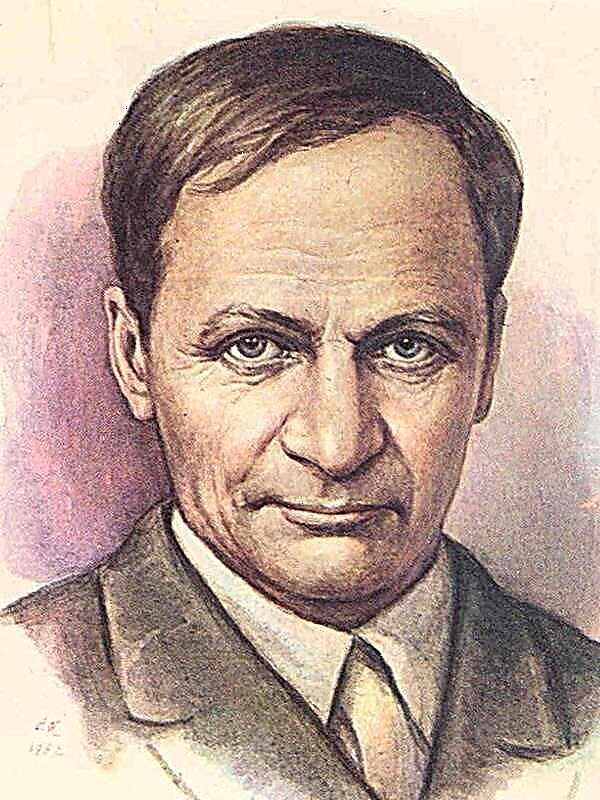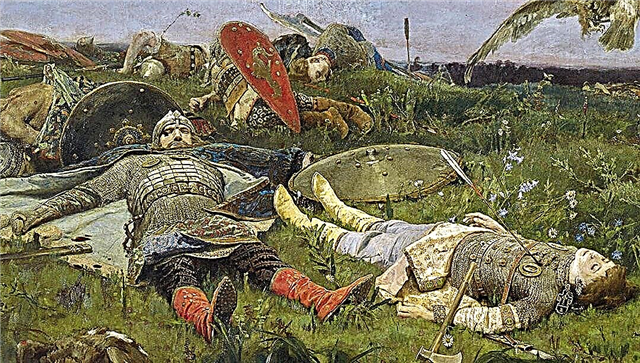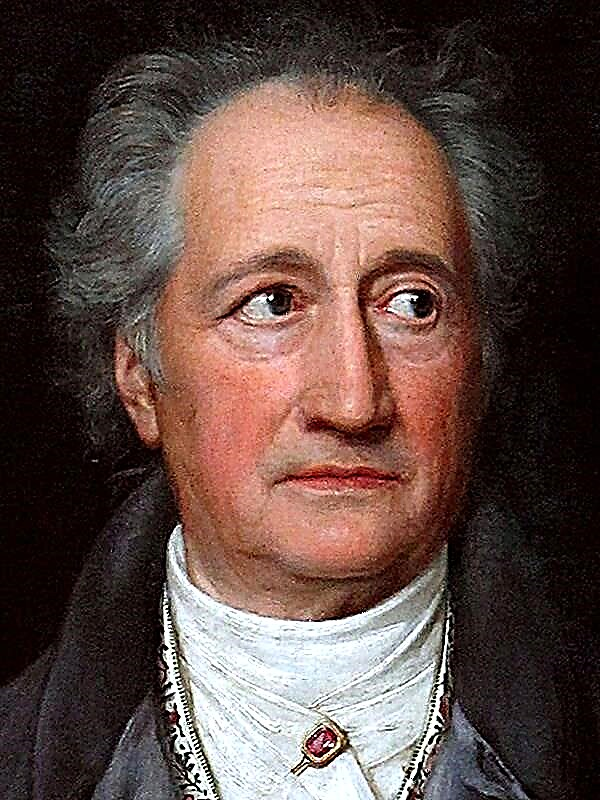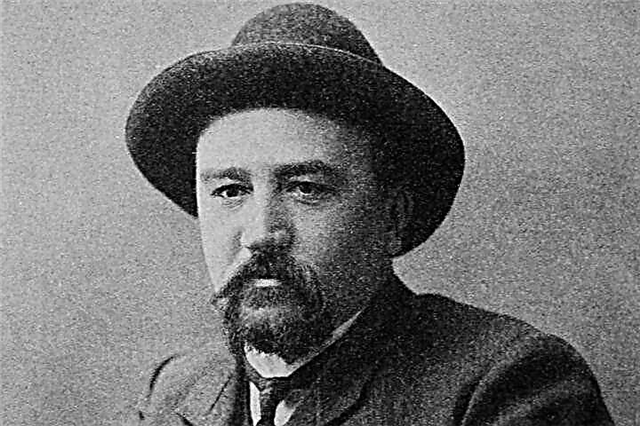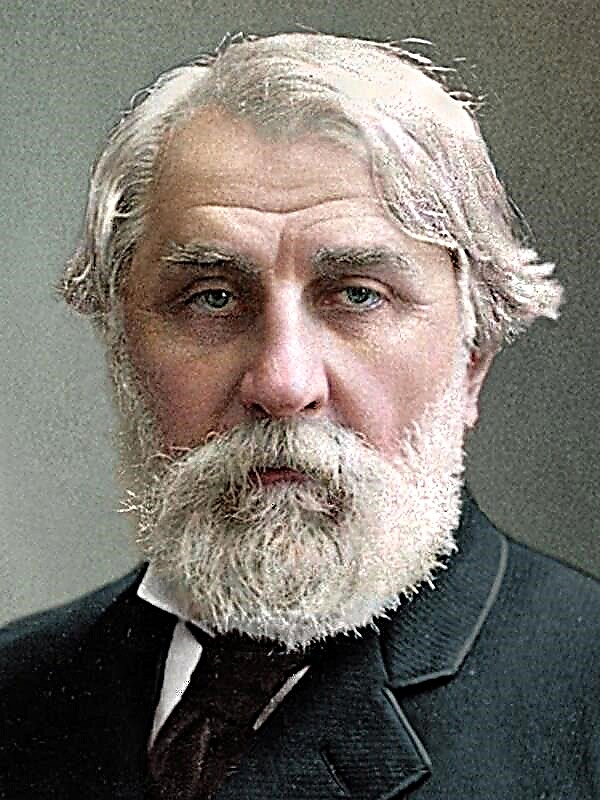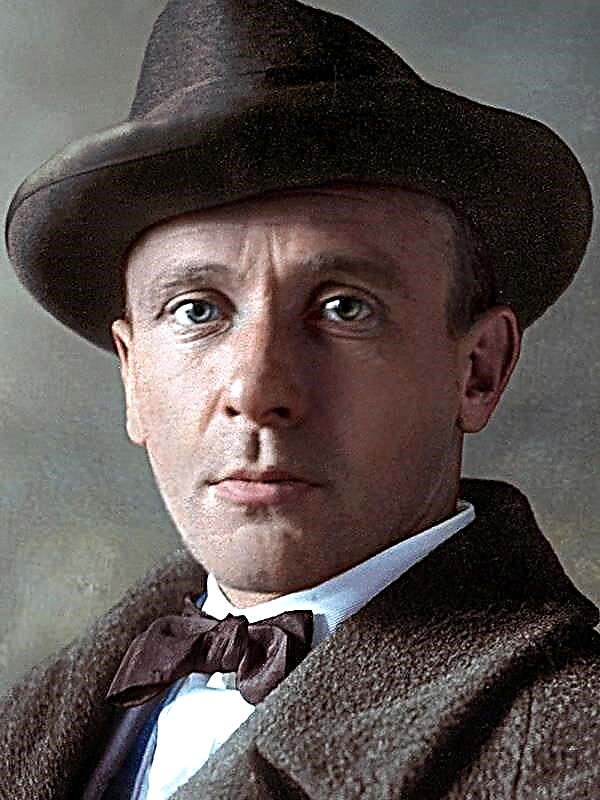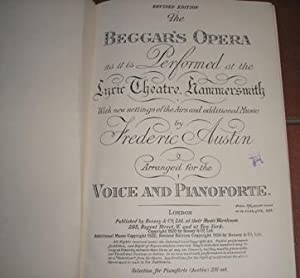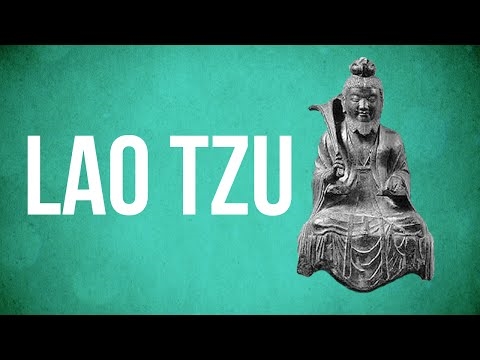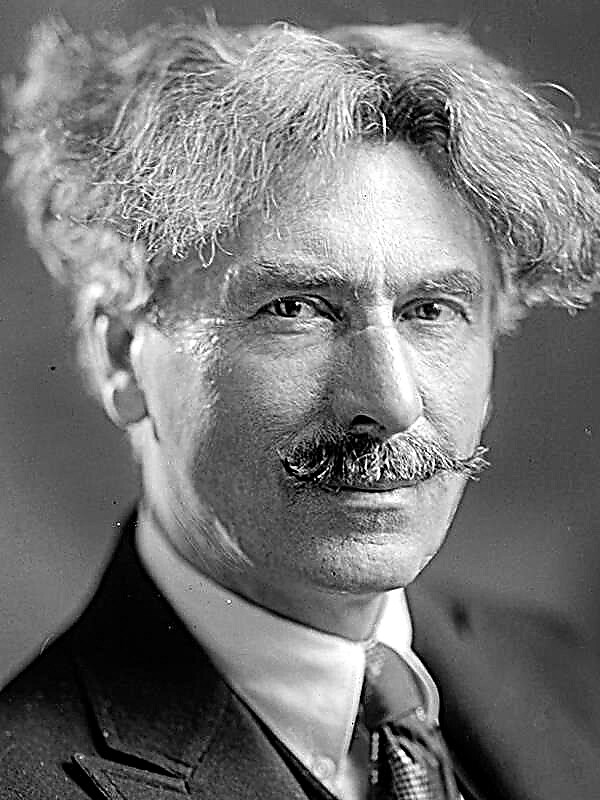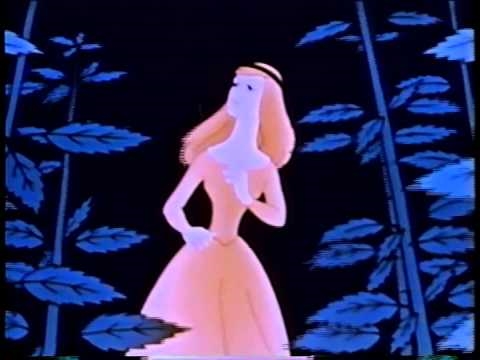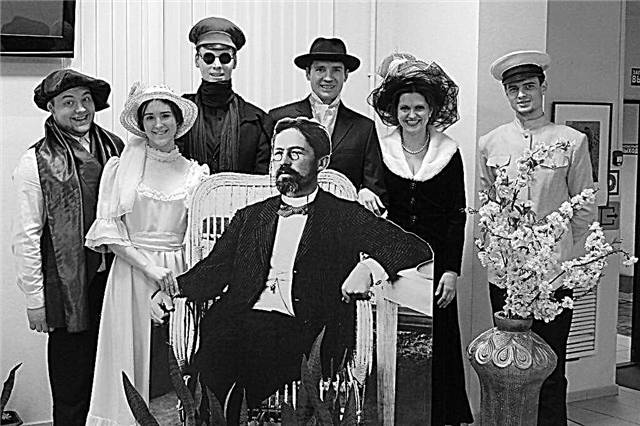In Russian literature, characters with psychological personality disorders are quite common. And the works of N.V. Gogol is no exception. He knew how to penetrate the human soul in order to show the reader the anguish suffering of a Russian person. A little strange vision of the world greatly influenced the text of his works. The feeling of deep despair is one of the most important motives of his work. The world of his heroes is immersed in madness. But who would have thought that his stories collected in the series of Petersburg Stories would become a kind of small encyclopedia of the “little man” that would open the door to the reader, penetrated by pain and loneliness.
History of creation
The story was written in 1834, during the period of work on several other stories, later combined into the general cycle “Petersburg Tales”. At that moment, Nikolai Vasilievich began to take the work of the writer very seriously and saw in it the only meaning of life. He works a lot, almost without rest, critics, including V.G., start talking about his work. Belinsky.
Then Gogol was fascinated by the stories of Odoevsky from the cycle “House of Madmen” and, perhaps, this influenced the idea of his story to a greater extent. There were also two more literary designs suitable for the plot: “Notes of a crazy musician”, as well as the unwritten comedy “Vladimir of the 3rd degree”. In these works, the plot is traced, similar to the theme in the notes. The focus was on the heroes who eventually became insane.
Gogol wrote notes based on his own observations, while he himself served in the department. The story contains elements related to the personal life of the writer. For example, the “Zverkov House” near Kokushkin Bridge is the house in which the writer himself and his friend lived at one time.
At the first publication, the work did not pass censorship restrictions, about which N.V. Gogol with some degree of disappointment wrote A.S. Pushkin:
A rather unpleasant censorship hook came out yesterday regarding the “Notes of a Madman”; but, thank God, today is a little better; at least I have to limit myself to throwing out the best places ... If not for this delay, my book might be published tomorrow.
Genre and direction
"Notes of a Madman" is usually called a story because of the average volume, concentration on one storyline and a certain number of characters, insufficient for the novel and excessive for the story. It is written in the genre of diary notes that the main character wrote for four months.
The direction in which Nikolai Vasilyevich Gogol wrote was difficult to concretize. Literary scholars later called him "Gogol". It arose precisely at the moment when the Petersburg Stories appeared in the 40s, and served as the basis for the emergence of the Natural School. This is one of the conventional names for critical realism, which only began to appear in Russian literature of that time. The main features of this area:
- realism of artistic expression;
- the presence of socially significant topics;
- critical attitude to social reality.
Composition
The composition of the story is divided into five parts, in which the tension is growing quite sharply, growing in the soul of the hero with each new line.
- It all starts with a story about the rather worthless life of Poprishchina and his secret desires.
- The following follows the main action: the hero dreams of marrying the daughter of his boss - Sophie, her beauty struck the poor heart of the unfortunate official.
- The event develops, we see the beginnings of madness in the head of the protagonist, at the moment when he seems to hear the conversation of two dogs on the street, one of which is Sophie's pet. Popreschin follows the animals to learn more about the mistress, and then decides on a rather strange act: steal letters from the basket of one little dog and read them. From letters he learns about Teplov - the potential bridegroom of his beloved, and this news plunges him into despair.
- The culmination of the action takes place at the moment when the hero ceases to go to the service and begins to imagine that he is the hidden heir to the Spanish throne.
- The story ends rather tragically: Popischina is placed in a madhouse, where he is faced with the horrors of the mentally ill and tries to write a letter to his mother asking for help.
The main characters and their characteristics
- The main character whose notes we were invited to read by the author - Aksenty Ivanovich Poprishchin. The official who is involved in the rewriting of papers in the department. His main job is to make feathers for the department director. This character reminds us very much of Akaky Akakievich Bashmachkin from the story “The Overcoat”. He is also alone, for forty-two years of his life he has not managed to get a family or at least a couple of close friends. His position is extremely poor, the hero is constantly ashamed of his old-fashioned dress and himself, including. In his free time, he almost always reads the Northern Bee magazine, lies on a sofa and sometimes visits the theater, considering this place the highest manifestation of real art. In general, his behavior does not seem strange to the reader, but with each new note, doubts about his mental health increase. The surname of the hero was not chosen by Gogol by chance. Poprishchin - comes from the word "field", it is it that describes the manic idea that arose in the head of Aksenty Ivanovich. Throughout the entire work, he frantically tries to find a destination in order to at least see in some sense the meaning of his own existence.
- Beloved Poprism - Sophie, daughter of the director of the department. A young, incredibly beautiful girl who belongs to the main character with a certain share of irony. From the letters of the two little dogs it becomes known that she taunted Aksenty Ivanovich, comparing him with the old turtle. Gogol does not try to characterize the heroine in a special way, but he makes it clear to the reader that persons from her circle simply cannot reciprocate the feelings of titular advisers.
- Teplov - camera junk, which Poprishchin also learns from stolen letters. There is no particular information about him, except for the fact that Sophie gave her heart to him.
- Department Director - a person who is often mentioned in notes. The immediate boss is Aksenty Ivanovich. At the beginning of the work, he appeared in a positive light, but after it became known about the upcoming wedding of his daughter with Teplov, his opinion radically changed. Poprishchin calls the director a freemason and a stupid cork who has no opinion of his own.
- Medzhi and Fidelka - not the latest heroes of the work. It is in the conversations and mysterious correspondence of these dogs that the fantastic side of the story is reflected. Thus, N.V. Gogol wanted to convey the mores and morals of secular society and how rotten it really is.
Topics
The little man is the main theme of the Notes. This image has repeatedly appeared in the Petersburg Stories. Gogol was particularly worried about this problem, since as a young man he often faced injustice towards people with a lower rank. When he arrived in St. Petersburg in 1829, he was literally shocked by the existing inequality that had taken root in society. He personally knew all the pain of a person who does not have enough money for a new overcoat, or the distress among young artists when he attended drawing classes at the Academy of Arts.
That is why Gogol wanted to show the life of people in inhuman conditions. And “Notes of a Madman” become the most tragic piece of the whole cycle. Everything that happens to Aksenty Ivanovich cannot be called a simple story about the life of a poor man. These are notes through which crazy cries of despair are heard, cries for help, painful experiences. The entire existence of the protagonist is concentrated only within the limits of his own head. Constant remorse, loneliness and poverty make him step to where there is no way out. The world of madness, like the gates of hell, unfolds in front of him and captures in its network. It is surprising that it is madness that leads the hero to rather sensible reasoning about his own lack of rights.
Problems
The story addresses a number of rather important issues. And the problem of derogatory poverty is one of the main ones. In the hero himself, a protest is concluded against unfair social foundations, where there are no longer such concepts as “reason” and “justice”. Indeed, in such an environment, many people begin to feel oppressed and weak. There is a moment of competition and comparison of oneself with others, which leads to total self-doubt. Condemnation and neglect of those who do not occupy the most prestigious positions, in the end, can lead to unrest more serious than one incident in the department of St. Petersburg.
Another major issue is loneliness. Poprischev embodies this concept. He is abandoned by everyone, no one wants to understand him. And Gogol is trying to draw the reader's attention to the fact that any person, regardless of his social status and financial situation, deserves participation. In each, you can try to discern the bright features, each deserves help and support. However, often people who lose the lottery are not needed by anyone. And at a time when loneliness surrounds on all sides, you can really go crazy.
Meaning
The main idea of the work is to reject the existing inequality and oppression towards individuals. Society does not even have time to think about the fact that violating moral principles can hurt someone. And the pain of public humiliation becomes doubly worse when a person tries to cope with it alone and most often loses in this unequal battle.
The author directs his main idea not only along the path of condemnation of an unjust hierarchical system. She wanders to the other side of the coin - the little man's personality crushed in the millstones of ignorance and envy. Her thoughts are just as shallow and vain as the inner world of talking dogs. What does he want from life? To become like gentlemen, marry a noble young lady, enter a chosen society, which promises him respect and awe in the eyes of representatives of the world. His values are false, because in them there is neither true love, nor a divine spark of calling, nor purposefulness of the mind. These inconsequential and fake phantoms also contribute to the sad ending. Achieving and wanting them, a person loses himself.
Criticism
Critics more often responded favorably about Gogol’s new story. Then he already became an influential and prominent figure in the literary world. They listened to his opinion, his works willingly published. Many reviewers guessed the master’s greatest talent and described it more than once. Of course, the government press, headed by Faddey Bulgarin, the same “Northern Bee”, presented in the text of the book, sarcastically and viciously described the author’s new work, which was already disliked in official circles.
But the memorable criticism of V.G. Belinsky:
Take the Notes of a Madman, this ugly grotesque, this strange, whimsical dream of an artist, this good-natured mockery of life and man, a miserable life, a miserable man, this caricature in which such an abyss of poetry, such an abyss of philosophy, this mental history of the disease, outlined in poetic form, amazing in its truth and depth, worthy of Shakespeare’s brush: you still laugh at a simpleton, but your laughter is already dissolved in bitterness; it is a laugh at a madman, whom delirium makes laugh and arouses compassion.

